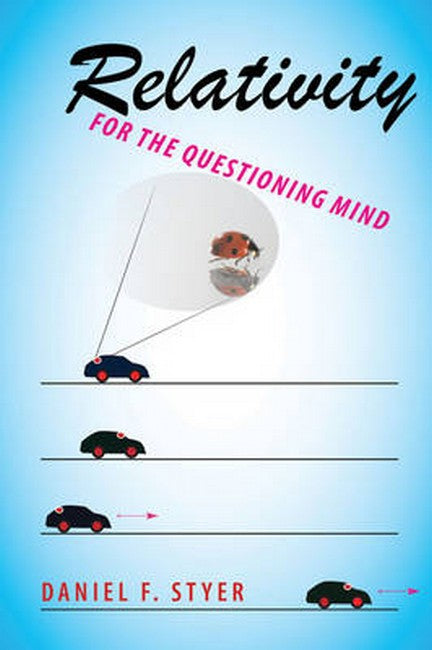To those of us who are not mathematicians or physicists, Einstein's theory of relativity often seems incomprehensible, exotic, and of little realworld use. None of this is true. Daniel F. Styer's introduction to the topic not only shows us why these beliefs are mistaken but also shines a bright light on the subject so that any curiousminded person with an understanding of algebra and geometry can both grasp and apply the theory.Styer starts off slowly and proceeds carefully, explaining the concepts undergirding relativity in language comprehensible to nonscientists yet precise and accurate enough to satisfy the most demanding professional. He demonstrates how the theory applies to various reallife situations with easy equations and simple, clear diagrams. Styer's classroomtested method of conveying the core ideas of relativity -- the relationship among and between time, space, and motion and the behavior of light -- encourages questions and shows the way to finding the answers. Each of the book's four parts builds on the sections that come before, leading the reader by turn through an overview of foundational ideas such as frames of reference, revelatory examples of time dilation and its attendant principles, an examplebased exploration of relativity, and explanations of how and why gravity and spacetime are linked. By demonstrating relativity with practical applications, Styer teaches us to truly understand and appreciate its importance, beauty, and usefulness.Featuring worked and endofchapter problems and illustrated, nontechnical explanations of core concepts, while dotted throughout with questions and answers, puzzles, and paradoxes, Relativity for the Questioning Mind is an enjoyabletoread, complete, concise introduction to one of the most important scientific theories yet discovered. The appendixes provide helpful hints, basic answers to the sample problems, and materials to stimulate further exploration.''Organized beautifully and written well, this is one of the clearest explanations of the traditional stumbling blocks to learning relativity. I would recommend it to anyone who really wants to understand the core points of relativity without a lot of distracting information.'' -- Don Lincoln, author of The Quantum Frontier

